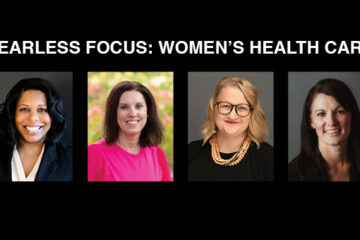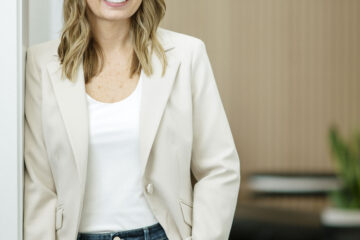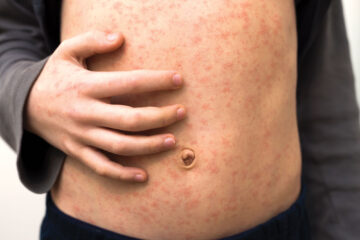Drinking is prevalent in American culture, even beyond tailgates, having a drink at dinner or going out with friends. Fancy wines and spirits are given to others as housewarming or holiday gifts. Alcohol is sold and served at hair salons, movie theaters and zoos. Type in “wine shirt” on Pinterest and you’ll come across popular designs that say “Wine tasting is my favorite sport,” or “I make pour choices.” Businesses frequently encourage their employees to attend sponsored happy hour social gatherings or mix and mingles.
More than 85% of American adults have consumed alcohol at some point in their lives, including many who have done so within the last year. The Centers for Disease Control and Prevention estimates that 1 in 6 U.S. adults binge-drink, a behavior defined as consuming four or more alcoholic drinks per day for women and five or more drinks per day for men for at least once a week.
While the numbers of binge drinkers and those with alcohol use disorder have been dramatically increasing across demographics in the last decade, they have especially risen for women.
Alcohol use disorder, often referred to as alcoholism, is a medical condition that is characterized by uncontrolled drinking that leads to an emotional and physical dependence on alcohol. It ranges in severity and affects more than 14 million American adults.
If left untreated, overconsumption of alcohol can lead to liver failure, pancreatitis, brain damage and other conditions. The criteria for diagnosing alcohol use disorder vary, but if you notice that you are drinking more than you mean to, or someone you know is, or that you or they are reliant on alcohol to get by, there are several avenues for seeking help.
I’m someone who currently drinks but wants to stop.
There are a variety of free support groups and organizations that are available.
Alcoholics Anonymous connects individuals who have or have had a drinking problem. AA uses a 12-step approach to recovery and holds regular group meetings.
The Substance Abuse and Mental Health Services Administration offers information and resources around a number of different substance abuse disorders. Its free, confidential help line is available 24 hours a day, 365 days a year at 800-662-HELP.
Women for Sobriety is a nonprofit that caters to women seeking recovery for substance use disorders. Its moderators and chat leaders lead mutual support groups online and in person. Phone volunteers are also available for one-on-one support. They welcome all expressions of female identity.
Self-Managing and Recovery Training (SMART) offers free assistance for a broad range of addictive behaviors and substances, including alcohol. Using social support groups and other tools such as self-assessments and worksheets, SMART Recovery uses a self-empowerment approach for treatment.
I’m someone who is a friend or family member of someone who needs help.
The Addiction Center recommends approaching the loved one with respect and avoiding accusations by focusing the intervention on how their alcohol use has caused emotional or physical distress for you or others. “Make sure they know your intervention is coming from a place of concern and not of judgment,” its website advises.
Al-Anon Family Groups is a support group for those with a loved one who is affected by alcohol, regardless of whether they’ve admitted to a problem. Al-Anon also offers special assistance and support for teens with loved ones with an alcohol addiction.
Additionally, it’s important to know that many people who experience alcohol use disorder prefer person-first language, because it helps reduce stigmas. For example, they may prefer to be referred to as “someone with a substance abuse disorder” rather than an “alcoholic.”
I’m someone who has decision-making power in my workplace or community space and I want to help.
Experts encourage businesses and organizations to make sure employee assistance programs, including those that counsel people with addiction, are within their benefits packages.
Some advocates have also called for open discussions about addiction within the workplace, as doing so helps remove stigmas.
Angie Chaplin, founder and owner of Mindful Leadership, said one of her favorite quotes about addiction is from Johann Hari and reads, “The opposite of addiction isn’t sobriety – it’s connection.” She encourages taking sobriety conversations “out of church basements and into boardrooms.”
“Even for businesses to start holding conversations … bring in an EAP provider or counselor or speaker and talk about it in the workplace. Rather than pushing people out to take care of their recovery, let’s bring people in and understand that it does take a community to recover from whatever we’re recovering from.”


